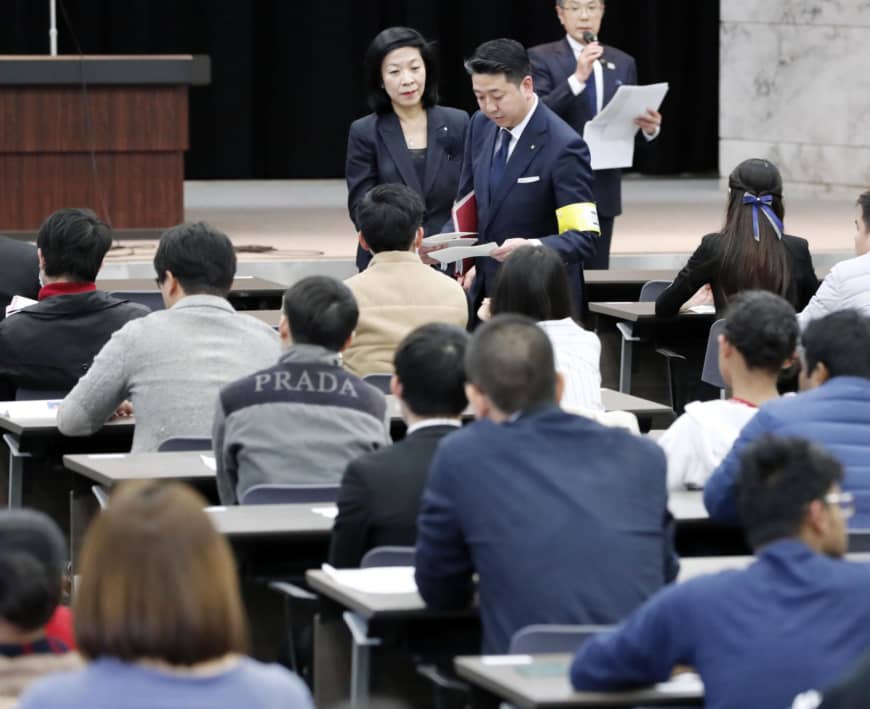New law holds government responsible for teaching Japanese to all foreign residents

@hÆEÖÌOlJÒÌó¯üêgåÉü¯AàÅßÄÀ{³ê½V½ÈݯiuÁèZv̱Ìó±ÒçPSúßãAEàªÖ
Foreign residents “who wish to study Japanese must be guaranteed as much as possible of the opportunity to do so, in a way that would match their needs, abilities and circumstances they are placed in.”
The law covers children, students, salaried workers, technical interns and refugees.
It also clarifies that municipalities bear the responsibility to take appropriate measures to facilitate Japanese-language education and urges employers to provide foreign workers and their families with tutorial opportunities. The law tasks the central government with implementing “fiscal measures” toward these goals.
The legislation also calls for improving the quality of Japanese schools and urges the state to take steps to improve the salaries of their teachers.
The bill was submitted by a cross-party group of lawmakers at a time when Japan is steadily drawing more foreign residents but has largely “failed to provide a sufficient environment where they can study Japanese,” lawmaker Masaharu Nakagawa told the Upper House committee on education Thursday.
Figures compiled by the Justice Ministry show that the number of non-Japanese residents across the nation had hit a record 2.73 million as of the end of last year, up 6.6 percent from a year earlier.
“Municipalities in Japan have long been hard-pressed to do anything about Japanese education, because the lack of any legal basis for promoting it has meant they have no way of convincing naysayers why they need to do it, and that they would have to do it within the limitations of their own budget,” Kamiyoshi said.
Although the 2001 law for promoting culture and the arts does mention the importance of “enriching” Japanese education, its fundamental emphasis is on facilitating foreign residents’ understanding of Japanese culture, rather than encouraging their integration with Japanese society — the spirit underlying the new law, he said.
Source and Details:
Leave a Reply to IndoJapanPulse
Please look at footer of website for Disclaimer and Privacy Policy.




